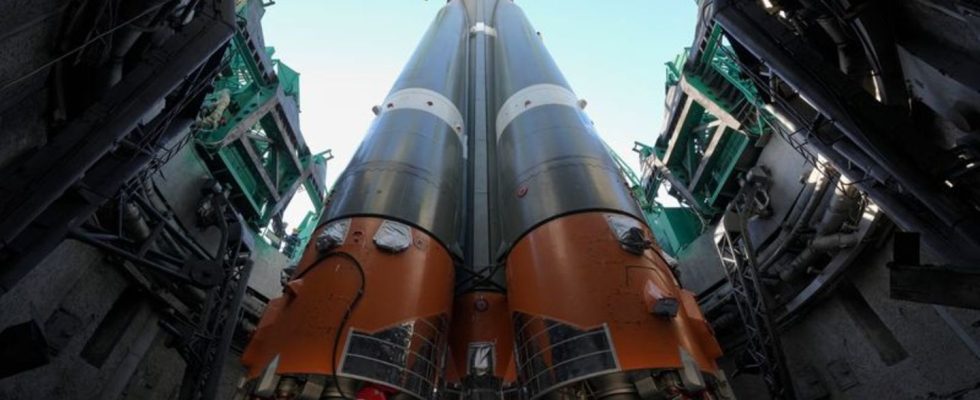Space travel
Soyuz launch to the ISS aborted – technical problem
The Russian space agency Roscosmos cited technical problems as the reason. photo
© Dmitri Lovetsky/POOL AP/dpa
For the first time, a woman from Belarus was supposed to fly to the International Space Station. But the countdown was canceled on Thursday. The reason was later given as a technical problem.
The launch of a Soyuz launch vehicle with two female astronauts Belarus and the USA as well as a Russian cosmonaut in a space capsule to the ISS space station was surprisingly aborted on Thursday.
The carrier rocket with the Soyuz MS-25 spacecraft was scheduled to take off from the Russian Baikonur cosmodrome in the steppe of the Central Asian Republic of Kazakhstan at 2:21 p.m. CET. The mission was ended 20 seconds before the planned liftoff, as seen in the live broadcast on Nasa TV.
Technical problems
The Russian space agency Roscosmos later cited technical problems as the reason: Shortly before takeoff, “a voltage drop in a chemical power source” was detected, said Roscosmos boss Yuri Borisov, according to the Russian news agency Interfax. The crew was safely taken out of the capsule. The next possible launch would be on Saturday at the earliest, NASA TV said.
In the USA, meanwhile, a Falcon 9 launch vehicle from SpaceX took off as scheduled from the Cape Canaveral spaceport in the state of Florida on Thursday afternoon (local time) to bring almost three tons of equipment and supplies to the ISS.
Two women on board together for the first time
On board the Soyuz launch vehicle were Belarusian cosmonaut Marina Vasilevskaya, NASA astronaut Tracy Dyson and Russian cosmonaut Oleg Novitsky. The 33-year-old Vasilevskaya, who works as a flight attendant for the Belarusian company Belavia, is the first woman in her country to fly into space. It was also the first time that two women were scheduled to fly together aboard a Soyuz capsule to humanity’s outpost 400 kilometers above Earth. There has already been a female duo on a Soyuz return from the ISS.
Space cooperation continues despite US sanctions against Russia and Belarus and despite political tensions between the countries. “Regardless of the turbulence, we continue our international cosmic cooperation,” said Russian Deputy Prime Minister Denis Manturov, who also heads the Ministry of Industry and Trade, in Baikonur.

